Pete Sutton's Blog
September 30, 2025
Writing About Writing About Writing 34
Part 34 of an intermittent series where I read or re-read the writing books on my shelf to see if they’re worth keeping. See previous part here and Index of all books here.
Milford Science Fiction Writers have also been serialising this set of blog-posts, they’re good people, you should check them out.
It’s been five years since I started these blog posts, ostensibly to reduce the amount of writing books I own. For a while it did lead to a reduction but I buy books faster than I read them (not just writing books, all books) and the shelf is once again double-stacked and in need of a good clear out. Maybe, like the apocryphal painting of the Forth Bridge, it will be a neverending task, and once I reach the end of the shelved books, I must start again?
I also owe my friend Merlin a post about his book Want, Do, Get – hopefully I’ll get on to that soon – suffice to say, this is a screenwriting manual worth your time, and I’m embarrassed that it’s taken me so long to mention. I will do a post about it.
Due to some fairly serious life stuff, I’ve been a little absent, That’s probably not going to change any time soon. So am grabbing 5 to put together the latest post in the series while I can. Last one was July, it’s now basically October so what have I been reading?
I’ve spent the last few months reading books about creativity. I have more on the shelf but I’m going to be changing gear because I’ve entered editing mode as I have another novella to complete the edit on and ‘something else’ to get ready for publication (can you vagueblog, like vaguebook?)
The Gift
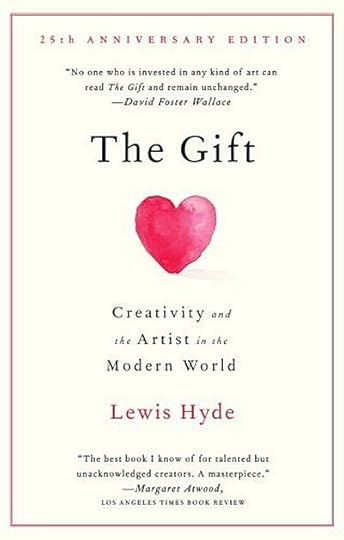
Atwood makes this sound like it’s a must-have for any writer and yet I found it a little stuffy and only very tangentially useful. I didn’t hate reading it, but it’s not one for someone looking for something immediately applicable to writing.
Creativity and Taoism

I’ve been on a bit of a Daoist kick since getting into Tai Chi and so when I saw this in a charity shop I picked it up. It’s pretty much, as you’d expect, a guide to how Chinese art has been influenced by Daoist thinking. And, as such, of only minor interest to the majority of writers. I liked it and I did invest in a couple of classic writing books from Chinese authors as recommended in this book, The Wen Fu I already had and reviewed in WAWAW 30, but bought an expanded version, with commentary which I’ll get to some time. I find it’s always worth looking outside our Western perspective on things.
The Key to Creativity
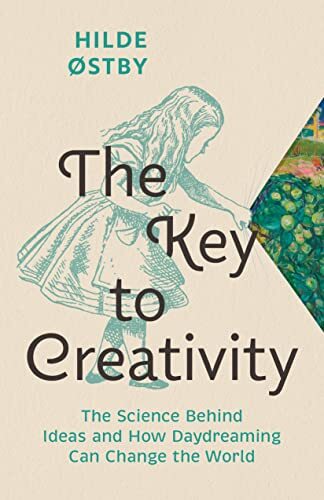
This was a nice book. The author had a bike accident (not so nice) which caused a head injury that changed her perspective on life. She muses on creativity using Alice in Wonderland as a jumping off point. She’s Norweigian and that gave the book a slightly different slant. The only issue I found was that she used examples of Norweigian artists and writers that I wasn’t at all familiar with and often whose work has not been translated to English or even made it outside of Norway. A good read though, I picked this up last time I went to the Tate in London.
Catching the Big Fish
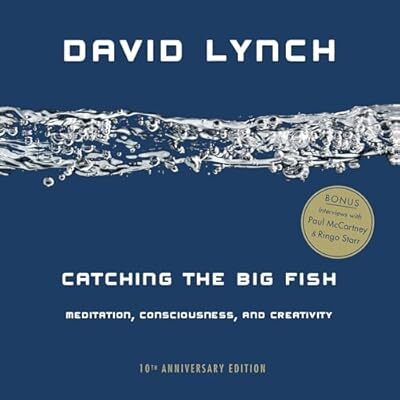
Touted as a guide to meditation and creativity it’s pretty sparse and aphoristic. Lynch is obviously a creative others would want to emulate – this is not the book to teach you how to do that. I do have another, much thicker, book called Room to Dream by Lynch which may be though. It was a fast read and probably one I should go back and ponder more at length.
Blueprints
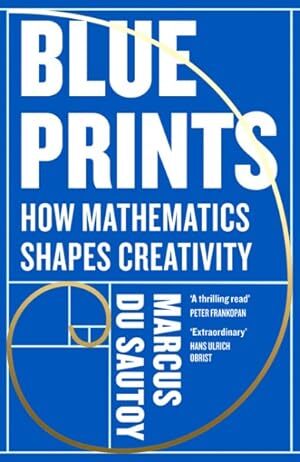
I have a mixed relationship with maths. At school it was my worst subject and I failed O Level maths and had to repeat it in the sixth form (showing my age here). However I feel if I’d have met Du Sautoy as a teacher things may have been different. As an aside I did go from bottom of the class to top of the class during the period my maths teacher was away on maternity leave, only to return to the bottom of the class when she returned, read into that what you will! I also asked for tuition in maths when I went to university to do a science degree and came near the top of the year at A level equivalent. And yet I still feel stupid about numbers and do not have a mathematical bent.
Anyway, back to the book – Du Sautoy proposes that if there was an equivalent to maths literature (like English lit versus English Lang) then maths would be more popular. I agree – I like reading about mathematicians and maths (and science) despite my weakness in it as a subject. In Blueprints he takes a bunch of people inspired by maths in a number of artistic disciplines – like architecture and music – and explores the interplay between maths and art. I really liked this book, but I’m not sure I’d recommend it to writers (writer who like maths are a niche audience I feel?) – it really is tangential.
And now, on to editing books – as I have a new one (Intuitive Editing by Tiffany Yates Martin) I’m going to compare it to The Last Draft which I reviewed in WAWAW 19. I’ve also got a trio of books that are of the ‘here’s a story and here’s the author talking about the story’ ilk which I’ll probably read while procrastinating about editing my own work. I’ve also edited other people’s work recently – more on that when things are announced.
Sadly, due to health reasons, I’ve stood down as editor of the BFS Horizons magazine – but hopefully I’ve left it in good order and certainly in good hands.
Drop a comment with your favourite writing book or tip here or email me via the Contact page. If you’re a publisher or Indie Author and would like me to review your writing book drop me a line!
August 15, 2025
quick update – book news!
I am doing a very quick drive by update to say that I have a short novella (or long short story?) I’m self-publishing (as a test) called The Devil’s Prayer that you can currently pre-order on Amazon
There is a second (longer) novella set in the same world I’m aiming to bring out next month.
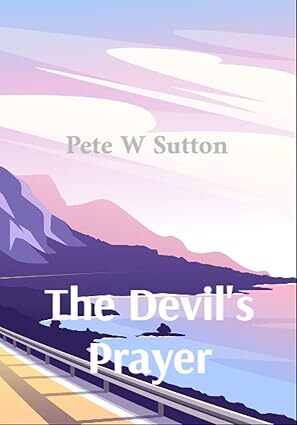
August 8, 2025
Drowing in content part 2
In 2021! I wrote a blog post about ‘drowning in content‘ where I bemoaned the endless TBR and made futile plans for tackling it.
To mix metaphors – according to Oliver Burkeman in an article titled Treat your to read pile like a river: “In a world of effectively infinite information, the better you get at sifting the wheat from the chaff, the more you end up crushed beneath a never-ending avalanche of wheat.”
I’ve also got grabby hands syndrome due to being resource poor into my late 20’s (and now I’m time poor). And, as per my previous post, reading books is a different hobby to accumulating books. Burkeman suggests “treating your “to read” pile like a river (a stream that flows past you, and from which you pluck a few choice items, here and there) instead of a bucket (which demands that you empty it).”
I look at the WAWAW shelf, and see that it has only grown since I wrote the post in 2021, and the main TBR, which I trimmed recently by accepting that there were some books I just wouldn’t get round to reading, and shake my head.
Maybe I’m stuck in “backlog” mode – looking at the TBR as something to be reduced rather than accepting it’s impossible to do so given my compulsive book-buying habit?
I still feel that the original impetus for WAWAW (five years ago!), to leverage reading the WAWAW books to collect reviews for this blog, was a good one. And I shall continue with that. For the ‘other’ TBR I need to pluck books from it as and when they take my fancy, rather than consider it a chore to be completed. Burkeman explains that if it’s not a chore, and it’s fun, you are more likely to do it – and it’ll get done more easily and quickly. For the sake of room, though, I still need to moderate the books accumulated versus books read equation to favour the read over accumulated…
July 13, 2025
Writing About Writing About Writing 33
Part 33 of an intermittent series where I read or re-read the writing books on my shelf to see if they’re worth keeping. See previous part here and Index of all books here.
Milford Science Fiction Writers have also been serialising this set of blog-posts, they’re good people, you should check them out.
Apparently the last of these was in May and I appear to not have read very many writing books since. I have however been involved with some writing projects (as discussed in the last one) – several submissions and counting. Also working on an editing job (as well as some copyediting for Wizard’s Tower and Solaris). And some publication news coming soon, I hope! So green shoots continue to be green (which is a miracle in this weather).
This time round there are only two books – On Writing by George V Higgins and Creative Demons (and How to Slay Them) by Richard Holman and Al Murphy.
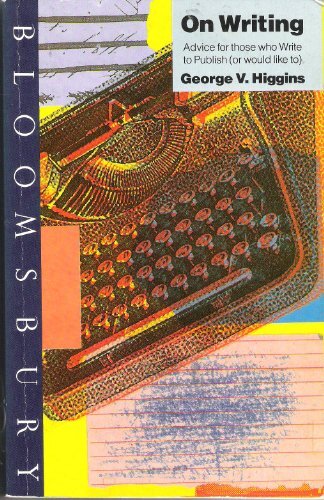
I went to an event in Bath about Higgins, an interesting author who wrote one of my favourite books of the last few years – The Friends of Eddie Coyle. When the presenter mentioned this book I had to, of course, purchase a copy. This was very much in the vein of “I have some opinions about this and I’m going to expound on them.” Rather than a ‘How to’ as such. It’s also got long excerpts (sometimes half a chapter) of writing Higgins believes is of such outstanding quality he hardly needs to explain what it demonstrates. He also says you must never be friends with editors.
He seemed a bit of a larger than life type of character and very much wrote for money. Overall an entertaining read (I admit to skipping a lot of the excerpts) but not one I learned a great deal from – and so to the discard pile it goes.
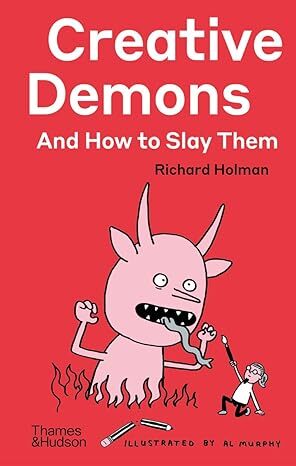
With Creative Demons I feel like I once again expected THE answer as to why I am struggling to return to the levels of productivity I once had when writing. I mean of course I *think* I know why (perfectionism and fear) but not how to get back on the horse (apart from the obvious – make shitty first drafts and stop end-gaining) But you know, I mean the MAGICAL answer that doesn’t involve facing the fear and doing it anyway. So, this is a neat book with nice illustrations and it was worth reading but my expectations weren’t met… I also read the ebook so no need to discard as it’s not taking up shelf space so doesn’t fit the criteria really. But it was the only other writing book I read so it’s going in, dammit!
Anyway – I’m still searching for that answer, which is probably why I’ve been shunted into the ‘Books about Creativity’ tangent. Of which I have a dozen or so books, and will be reading those until I get distracted.
Drop a comment with your favourite writing book or tip here or email me via the Contact page. If you’re a publisher or Indie Author and would like me to review your writing book drop me a line!
May 4, 2025
Writing About Writing About Writing 32
Part 32 of an intermittent series where I read or re-read the writing books on my shelf to see if they’re worth keeping. See previous part here and Index of all books here.
Milford Science Fiction Writers have also been serialising this set of blog-posts, they’re good people, you should check them out. It did, for a second, make me think I could turn this blog series into something, a book maybe. I pitched it to a publisher. They were underwhelmed, ‘Sounds like a good idea for a blog,’ they said.
The last one of these was in November, it both seems like a long time ago and metaphorically yesterday. I’m still struggling. Anway, enough about that – Let’s talk books:
First up are a pair of books with the same premise but different execution. Creators often talk, in print, about their creative processes, so why not collect short pieces together into an anthology? Good idea. The first is edited by Brewster Ghiselin and they’ve chosen an eclectic range of contributors including scientists (including Einstein), mathematicians, musicians, painters etc, but I found this really quite dry. The better option, for my money, was edited by Barron, Montuori & Barron – which isn’t quite as eclectic but the pieces are better written and more engaging. Even the covers are similar (and, typically dull).
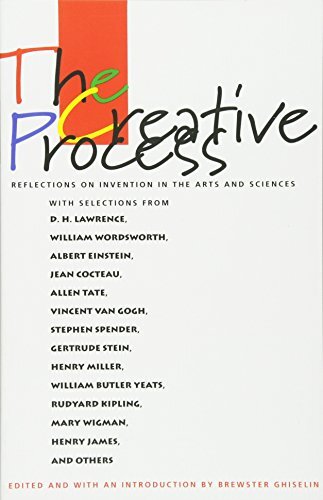
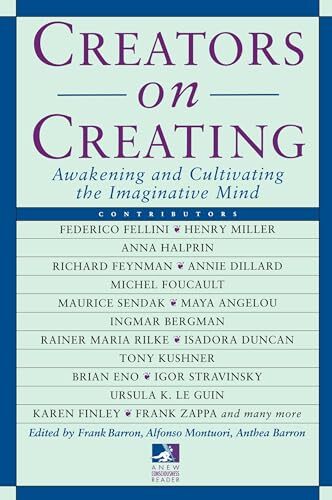
The next few books follow on from Cybertext (I covered in WAWAW 31)

Hamlet on the Holodeck by Janet Murray has a new edition, and it’s a shame I didn’t know this as the version I read was seriously outdated. It’s an academic book – and reads like one. But does have some interesting things to say about electronic literature. Which, not at all coincidentally, was the next book.
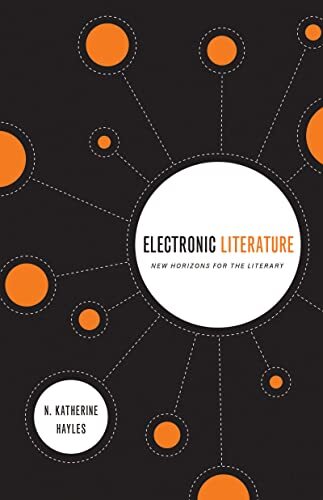
If you don’t know anything about electonic literature, or even what it is and want to educate yourself with essays on the subject you can read this. However I found it a little dull as a read. But as a skim it’s a great overview – but, again, dated – but then that’s the joy of picking these books up at charity shops, right?
The last in this mini-series (for now) is Story Machines.
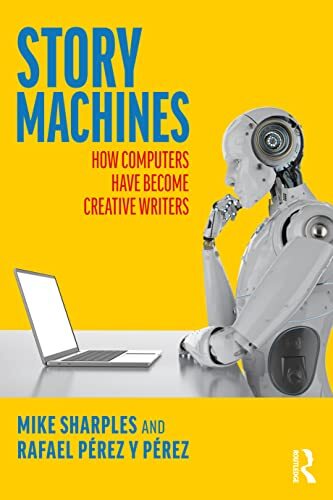
This was a much better read than the other two – and up to date (well, almost – it’s a fast-moving field and this was published in 2022, but at least has some thoughts on ‘a’ version of Chat-GPT). It’s engagingly-written and another useful overview and if you had to choose one of these three books is the one I’d steer you to.
Does reading any of those three books make you a better writer? Maybe not – but I think Story Machines with an examination of different models of storytelling strategies – in the way that computer folk have retro-engineered authors’ processes – is probably the most applicable too.
And the final book for this post is Tone
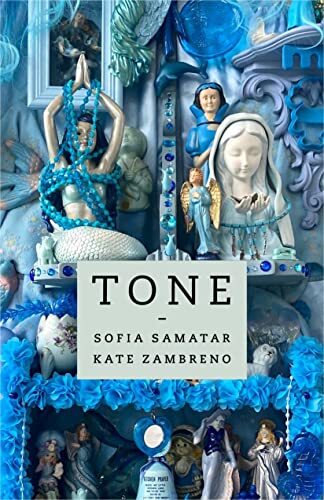
Unlike most writing books this has a great cover – really striking and outstanding. But I didn’t get on with the way this was written, and my attention wandered, and I’ve put it down on the discard pile.
(from the Amazon blurb)
Tone is a collaborative study of literary tone, a notoriously challenging and slippery topic for criticism. Both granular and global, infusing a text with feeling, tone is so difficult to pin down that responses to it often take the vague form of “I know it when I see it.”
It was the collaborative voice (the ‘Committee to Investigate Atmosphere’ ) that I didn’t get on with, it seemed forced and gimmicky. There wasn’t much in the way of insight either that I could see for the bit of the book I read.
I note that in WAWAW 31 I said: “Talking of Writers Block I have finally written and submitted something new last month, as well as polished and submitted something I wrote a couple of years ago.” – One of those is still under consideration and the other was published (see Publishing news). I am currently writing this blog post as procrastination from adding to a story in progress that is being waited for from the editor of an anthology. i.e. I hope to have a third submission out shortly…
Drop a comment with your favourite writing book or tip here or email me via the Contact page. If you’re a publisher or Indie Author and would like me to review your writing book drop me a line!
April 26, 2025
Publishing news
Out of the blue – but the result of a burst of enthusiasm some months ago – I have a new essay being published in a fine Black Shuck book – There’s Nothing Out There edited by Sophie Essex.
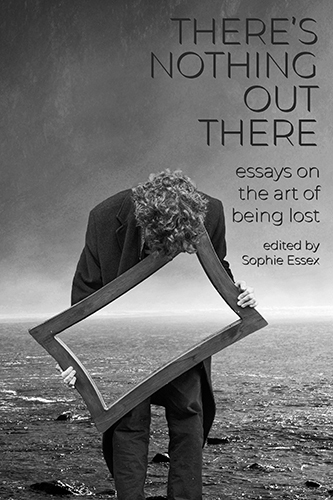
The lost-in-the-wilderness horror genre is a gloriously oversaturated market which both plays to our basic fears and our willingness to indulge them. In this collection of non-fiction, seventeen writers share passion pieces on some of their favourite films and celebrate the beautiful, often foolish art of being lost: whether literally, spiritually or figuratively.
Covering classics such as The Blair Witch Project and The Texas Chain Saw Massacre to the lesser-known In Fear and Arctic Void, together with a smattering of Ozploitation flicks, these essays examine why the genre is so beloved by moviegoers, and how such films resonate at our core long after the lights have come back on.
December 30, 2024
I have read 110 books this year – that’s down on 2023 whe...
I have read 110 books this year – that’s down on 2023 when I read 123, I read 133 in 2022, in 2014 I read 93 books
I’m going to blame the difficult year I’ve had
24 were by women – as usual this seems poor
I read books from 22 different countries
I rated 5 books as Brilliant:
The Dao of Taijiquan
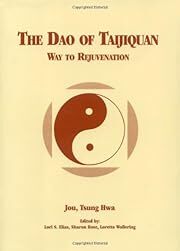
I started doing Tai Chi in 2023, this is the best explainer I’ve read so far.
Pratchett: A Life
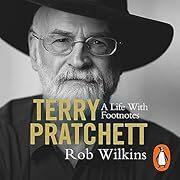
Here’s a tip – don’t read this if someone you know has dementia or is dying. Brilliantly written.
The tainted cup
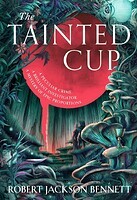
Big fan of Bennet’s characters and worldbuilding – this is a little bit Sherlock too for those who like that sort of thing.
Prophet by Sin Blache and Helen Macdonald
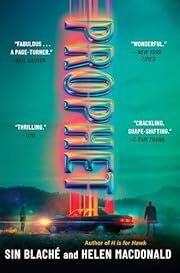
This won’t be to everyone’s tastes but I loved it.
and The mountain in the sea
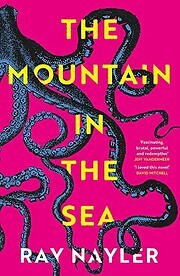
I’ve recommended this to a lot of people – very smart book about intelligent Octopuses, AI, linguistics and so much more.
The longest book I read was 739 pages – Vanished Kingdoms
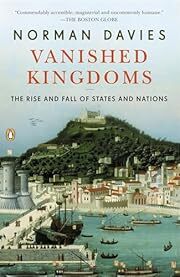
This was a mixed bag – some of it was excellent, some was a bit dull.
56 books I acquired in 2024
31 were off the TBR
the rest were presents or ARCs
76 were physical books
69 were nonfiction
8 were graphic novels
December 10, 2024
No update is an update
Back when I was querying agents and getting mostly a lack of response I spoke to an agent at an event and bemoaned the fact that 8 out of the 10 agents I queried didn’t bother to respond. She then uttered what sounded like a Zen Koan – “No response is a response.”
I guess what I’m trying (very badly) to say is that in between injections the clockwork will stumble and grind to a halt and my levels of energy will be low and I’ll procrastinate more. I had an injection today, which will mean in a day or two I’ll have a level of energy which may help me stop procrastinating on a few things. But often the fact there is a gap longer than a month between blog updates is an update of sorts.
I’ll be back with a WAWAW ‘soon’ (for a given value of soon) – maybe even a wrap up of the year, not done one of them for a while due to . The word ‘maybe’ is the key one in that last sentence.
November 13, 2024
Writing About Writing About Writing 31
Part 31 of an intermittent series where I read or re-read the writing books on my shelf to see if they’re worth keeping. See previous part here and Index of all books here.
October was, as ever, a busy month, holding both FantasyCon and BristolCon which I attended, participated in and enjoyed. I grabbed some books – including some writing books, so that doesn’t help the burgeoning TBR! Especially as I seem to have slowed down on the reading of such books…
I literally started reading Still Writing by Dani Shapiro the morning of my first panel at FantasyCon – which was all about Creative Burnout.
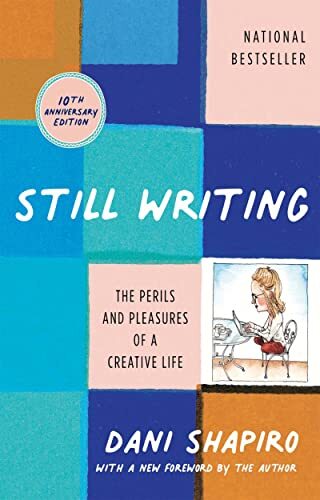
This is a beautifully and honestly written memoir of one writer’s life but with some meditations on the art and craft of writing. I finished it today – so it took me several weeks to read, but only because my reading has become so fragmentary. Each short chapter is one musing or remembering and I usually read three in one shot at a time. Hence its taken me a while.
I used to be a ‘one book on the go only’ sort of guy but these days I think social media and especially the pandemic took a hammer to my brain and it now looks like a particle collision map

Anyway, back to the book – I really enjoyed it and got something from it. I’m not sure it’ll bear a re-read though. But am willing to hang onto it for a while to find out. If, like me, you struggle to remember that it’s possible to even have a writing life with chronic illness and a day job and and… it may not be your thing. She and her husband make a living from writing. Which feels pretty privileged.
The other book I read last month was Cybertext by Espen Aarseth.
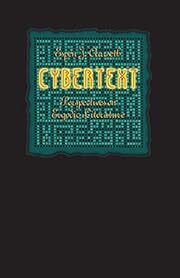
This was super-chewy and I have struggled to read it in the past. I have a number of ‘electronic’ literature books on the shelf for ‘reasons’ (i.e. I will probably dip my toes in this pond at some point.)
The reason this was on my shelf goes back to a throwaway comment Neil Gaiman made when he was interviewed by Hannah Berry at Edinburgh Book Fest. One of the ushers informed the tent that what Neil was talking about was called ‘Ergodic Literature’ – with the most famous (?) example being House of Leaves. I like this sort of thing (YMMV) and so upon a Google I came across this book as the first use of the concept and snapped it up. And it’s languished on the shelf ever since. But I’ve finally finished it. And find that like many seminal works it’s notable mainly for being the first – others have done it better. Perhaps? It’s very academic and set in a particular time of digital evolution where textual MUDs were the big thing and so is very out of date. However I did get some useful stuff out of it and it got the old brain ticking.
Slight swerve here – it appears Gaiman is, at best, a complete douche and probably an abuser so I no longer feel proud to have published a previously unpublished story by him!
Anyway, Cybertext, unless you’re very into academic lit theory about early electronic literature or ergodic literature you don’t need to read this. I have started my next read on the same subject, so that’ll pop up in the next WAWAW (number 32!) I guess.
Following on from Still Writing I’m going to cover off the final few books on Writers Block I have on the shelf before moving on.
Talking of Writers Block I have finally written and submitted something new last month, as well as polished and submitted something I wrote a couple of years ago. Green shoots, baby steps and other such cliches, but hopefully that marks the return of my motivation to write – or at least the first small glimmerings thereof.
Drop a comment with your favourite writing book or tip here or email me via the Contact page. If you’re a publisher or Indie Author and would like me to review your writing book drop me a line!
September 26, 2024
Writing About Writing About Writing 30
Part 30 of an intermittent series where I read or re-read the writing books on my shelf to see if they’re worth keeping. See previous part here and Index of all books here.
Quick health update – taking some time to get used to pacing as energy still seems to be poor. As per modus operandi I’ve read or am reading a few books on the subject. I enjoyed How to be Sick and am currently reading Pace Yourself. It turns out that unlike most other countries in the word the UK has decided (due, it seems to cost) that people with Pernicious Anemia only need injections every 3 months (the original periodicity, based on clinical evidence was 1 month – and there’s plenty of anecdotal evidence that some people need it faster than that even). I certainly saw symptoms return after 4-5 weeks. Having visited the GP again it seems that they are willing to do injections every 8 weeks and no more. Considering a B12 deficiency can cause irreversible nerve damage this seems… less than optimal. The Pernicious Anemia Society have been trying to change this for years.
I’m struggling to get back on the horse – I did start a new writing journal and scratch out some ideas and even the start of a new short story, but still being in the grey lands means this is slow and sluggish and inchoate.
Anyway, to the matter in hand – WAWAW. As stated in the last blog post I took a detour into books about creativity, and am still there:
“Creativity – From Freud’s ‘On Creativity and the Unconscious’ to Mihaly Csikszentmihalyi’s ‘Creativity’ with a diversion via Howard Gardner’s ‘Art, Mind and Brain,’ I got interested in how creativity works. But these are fairly technical and dry books so I’ve been putting them off.”
However there have also been a few, more standard(?) writing books too.
Several years ago I visited Vienna for New Year’s Eve (I heartily recommend this – great atmosphere, lots of hot wine and a New Year’s day visit to one of the best spas I’ve ever been to). While there I did of course visit Freud’s museum and bought, in the gift shop, On Creativity and the Unconscious

In keeping with books about writing (although this isn’t specifically about writing) it has a terrible cover.
I chose this one because it has his famous essay on ‘The Uncanny’ within. There are some other essays on literature, “The Relation of the Poet to Day-Dreaming” being the best of that bunch. Some essays are insightful and thought-provoking but many are forgettable and only very tangentially of interest. I do recommend ‘The Uncanny’ and I’ll be keeping the book as a method of having that essay to hand, but you can find it plenty of places on the internet.
As, back in the mists of time, I was reading Writer’s Block books but never finished adding them to the blog I’ll cover them off now:
The Writer’s Crucible

Look at that cover! This was the last Writer’s Block book I attempted and I bounced off it, hard. Which I suspect was due to where I was mentally. Flicking through it now – many months later, I find I remember nothing about it, so I’m sticking it on the re-read pile, if I bounce again it gets ditched. I am again drawn in by the blurb – “Perhaps the most common vulnerability we face is the persistent sense of not being good enough.” and “…provides a map for navigating the turbulent, emotional waters of a creative life.” So, back on the shelf it goes – to be continued!
Art & Fear by David Bayles and Ted Orland
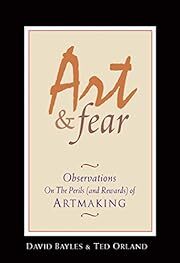
I’ve actually read this twice now – once way before starting this blog series and, again recently when struggling with the block. I’d say it gives a good introduction to the woes of creativity, it’s not limited to writing though so it’s also worth reading if you’re any sort of artist. The main message this book conveys though is “Don’t Quit.” Advice I still need it seems…
Wabi-Sabi for Artists, Designers, Poets & Philosophers

Very handsome book. An aesthetics of the ordinary, unfinished, simple and natural – and meaningful. The Japanese art of Wabi-Sabi which I knew very little about before diving into this book and now have a very brief grounding in due to it. It’s a lovingly made book, but it is very brief, and expensive for what amounted to an hour’s read (or less). Did make me want to explore the philosophy more, and yet so far I haven’t done.
In keeping with the Asian theme I also read a Chinese classic (while on retreat – a weekend I’d highly recommend) called Wen Fu

Again, incredibly brief – in fact I think the introduction was longer than Lu Chi’s words (which are all in poetic metre) but it feels like a book I can return to for some distilled wisdom.
Finding true joy, find laughter;
in sorrow, identify each sigh.
Sometimes the words come freely;
sometimes we sit in silence
gnawing on a brush.
Finally, for this post I read From Where You Dream by Robert Olen Butler

Which impressed me a lot. There are some lectures, followed by a ‘workshop’ and then some stories with critiques. This is a transcription of Butler’s graduate fiction course committed to paper through Janet Burroway (herself a writer of a classic writing text). “Butler reimagines the process of writing as emotional rather than intellectual.” So the blurb says, and he does have a particular process that is somewhat unusual in first creating a dreamspace from which to create inspired fiction. I’ll very much return to this, as having plucked it off the shelf since reading it many months ago it was immediately recallable, and my memories of reading it previously are fond ones. Writing that sparks.
So, that little lot remain on the shelf. I’ve immediately put the Wen Fu on the pile of books I’m currently, or about to, read.
Drop a comment with your favourite writing book or tip here or email me via the Contact page. If you’re a publisher or Indie Author and would like me to review your writing book drop me a line!
Pete Sutton's Blog
- Pete Sutton's profile
- 14 followers



